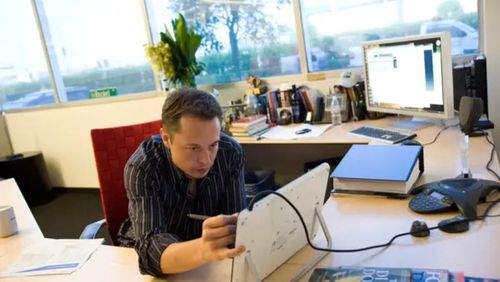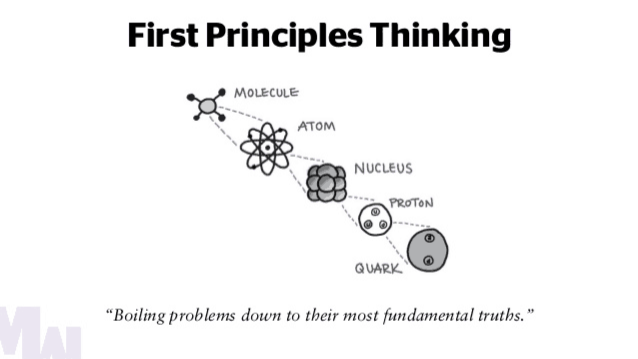How Elon Musk learns faster than everyone on Earth?
Nov 25, 2023 · 2 mins read
0
Share

The genius behind Tesla, PayPal, SpaceX, SolarCity, Neuralink, and The Boring Company has one framework for learning. First-principle Thinking is one of the best ways to reverse-engineer complicated problems, into fundamental truths and build up from there.
Save
Share
First principles thinking is one of the most powerful ways of breaking down complex problems and finding original solutions, it's also known as reasoning from first principles. It also is the most effective way to learn to think for yourself.
Save
Share
This method was used by the philosopher Aristotle and is now employed by Elon Musk and Charlie Munger. It enables them to recognize opportunities that others miss by cutting through the fog of faulty reasoning and weak analogies.
Save
Share
Elon Musk employed this method to learn about rockets and to build Space X from scratch. Musk began his mission to launch the first rocket to Mars in 2002, a dream that grew into the aerospace business SpaceX. But the cost of buying a rocket was astronomical up to $65 million.

Save
Share
Musk applied the first principles. What is a rocket made of? Aerospace-grade aluminum alloys, some titanium, copper, & carbon fiber. What is the value of those materials on the commodity market? It turned out that the materials cost of a rocket was around 2% of the typical price.
Save
Share
Instead of paying tens of millions of dollars for a finished rocket, Musk opted to start his own company, buy raw materials on the cheap, and manufacture the rockets himself. SpaceX disrupted the aerospace industry and cut the price of launching a rocket by nearly 10x.
Save
Share
In order to bypass the high aerospace sector prices, Musk used first principles thinking to break down the situation to its fundamentals and came up with an effective solution that revolutionized a complete industry. Now let's see you can apply it in your life and work.
Save
Share
Socratic questioning:
1. Clarifying your thinking and explaining the origins of your ideas (Why I think this and what exactly do I think).
2. Challenging assumptions(How do I know this is true?)
3. Looking for evidence(How can I back it up with concrete proof?)

Save
Share
4. Considering alternative perspectives (What might others think?)
5. Examining consequences and implications (What if I am wrong?)
6. Questioning the original questions (Why did I think that? What conclusions can I draw from the reasoning process?)
Save
Share
As Musk says "First principles is kind of a physics way of looking at the world, and what that really means is, you … boil things down to the most fundamental truths and say, “Okay, what are we sure is true?” … and then reason up from there. That takes a lot more mental energy."

Save
Share
0